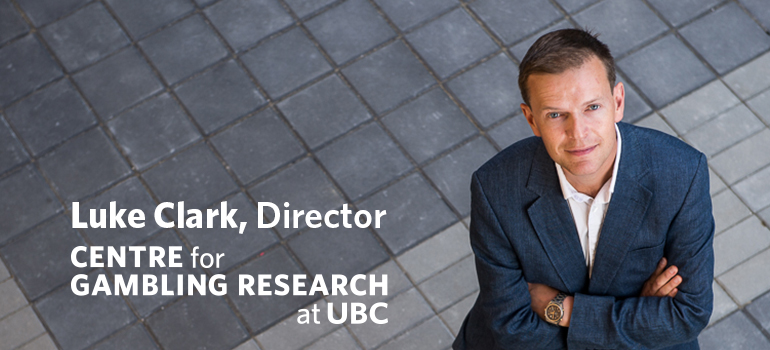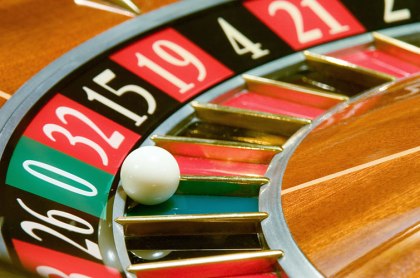Gambling Psychologist
Sadism and masochism (sadomasochism) are two of the behaviors in a group of sexual problems called paraphilias. Paraphilias are associated with sexual arousal in response to stimuli not associated with normal sexual behavior patterns. Gambling Grief Hoarding Infertility Infidelity. I'm a psychologist who believes in collaborative, holistic, and thoughtful therapy. I specialize in working with adolescents, college students. Gambling Counselling is a proven an effective treatment for problem gambling. Book with Sydneys most trusted network With a wealth of experience and a board of certified professionals, you know you’re in safe hands. We will refer you to a qualified Counsellor or Psychologist with experience in dealing with Gambling Addiction. If you, or someone you know, is suffering because of gambling, we’re here to help. We offer face-to-face, online, and over-the-phone therapy for difficulties related to gambling, and provide support for close friends and relatives of problem gamblers. Browse our extensive directory of the best Gambling Therapists, Gambling Psychologists and Gambling Counselors near you. Find a Gambling Therapist, Gambling Psychologist, Gambling Counselor.
Gambling Psychology

Support Groups
Do you want to talk to others who are in a similar position to you? Are you looking for advice, support and information from people who have been free from gambling for many years? Why not try our online peer support groups
Gaming Psychologist
Showing the next 3 groups on Wednesday 10th March 2021
Full list of groupsVisit our forums
Read and interact with other people who are struggling with gambling issues
Visit forum
Email Us
Email our team of volunteers and counsellors
Email UsSelf Help
Download our worksheets and Kickstart your Recovery
Self Help ToolsWho we are
Find out more about Gambling Therapy and the ways in which we can support you
Learn more about usThe Cycle of Addiction
Find out about the gambling cycle of addiction
Gambling info
The GT App
Download the GT App
Read MoreService Evaluation
How Did We Do?
 Please Tell Us!
Please Tell Us!The Stay Alive App
A free suicide prevention source
Download HereAustin, Texas -- People in addiction recovery and their loved ones understand all too well how addiction can damage their relationships. But recovery programs do not always give people the relationship skills needed to address those issues.
Kelly E. Green, an associate professor of Psychology at St. Edward's University and a licensed clinical psychologist, would like that to change, believing relationship skills are a key to long-term success in addiction recovery.
'I like to remind clients that addiction recovery and relationship recovery are interrelated processes,' Green said. 'Long-term addiction recovery should also focus on improving the relationships in your life, and improving your social functioning.'
In her new book, titled Relationships in Recovery: Repairing Damage and Building Healthy Connections While Overcoming Addiction, Green has expanded upon what she has learned as a researcher and clinician and turned it into a self-help workbook that focuses on relationship skills specifically for people in recovery. Her book is designed to be beneficial to people at all stages of recovery -- early, middle and later. A secondary audience for the book is people who are supporting loved ones in recovery. Published by The Guilford Press, the book can be pre-ordered on the publisher's website, Books-A-Million, Amazon and other booksellers before its July release date.
Green's program differs from some recovery programs that may recommend people focus on themselves and sobriety before engaging in relationships, especially romantic or sexual relationships. But not addressing relationships within the context of recovery is unrealistic and potentially harmful, Green counters.
'Although romantic relationships may or may not play a critical role in your life, it's important to recognize that other types of relationships also impact your recovery efforts,' Green said. 'When I work with addiction clients, they need help dealing with relationship issues with their family, children, bosses, probation officers, friends.'
'For many people, an addiction relapse is precipitated by relationship problems,' she added.
Green's interest in relationship recovery began when she was working as a clinician with veterans in addiction recovery at the Boston VA Healthcare System and noticed a need for relationship guidance. She went on to design a Relationships in Recovery group therapy program that is now utilized at several medical centers across the U.S.
Preliminary studies of the program have shown that it works to improve relationship skills, particularly related to setting and maintaining boundaries, communicating personal feelings and needs, ending relationships in a respectful way, and rebuilding trust in relationships.
Green designed the evidence-based workbook to be compatible with other programs or therapies, including 12-Step Programs like Alcoholics Anonymous and cognitive-behavioral therapy, as well as spiritual and non-spiritual-based recovery paths. It is also not tied to abstinence as an individual's recovery goal may be based in moderation or another controlled use goal.
Green's book recognizes that people in recovery face distinct challenges that may make rebuilding trust, communication, honesty and intimacy more difficult. In some instances, a person's family or loved one may not be willing to participate in relationship recovery efforts.
'The goal of the Relationships in Recovery program is to help people improve their relationships even if the significant others are not willing to participate - if you change your own behavior, it's going to translate into relationship changes even if the other person isn't an integral part of that relationship change effort,' Green said.
'It's unilateral family therapy -- you can do it on your own, but it's going to impact everyone in your life,' Green added.
For now, Green offers the following tips for improving relationships in the context of addiction recovery.
Three Ways to Improve Relationships at Every Stage of Addiction Recovery
Strive for interdependence.
Two of the most overused terms related to addiction are enabling and codependent. Loved ones are told to 'detach with love' or practice 'tough love' to encourage sobriety. People in recovery are told to watch out for codependent behaviors when they seek support or build connections. So people often shy away from healthy supportive behaviors, fearing the codependent/enabling dynamic. But the goal should be healthy interdependence, where both people are able to give and receive support in the relationship. People in recovery don't need punishment or to be taught a lesson, but they also shouldn't be shielded from natural consequences of their behaviors, and boundaries are critical. Try working toward healthy supportive behaviors when they're trying to make healthy choices and compassion when they stumble.
Provide and seek validation.
Validation is a specific communication tool that demonstrates respect and compassion in a non-judgmental way. It's so important that there's a whole chapter in my book about it. You don't have to agree with or encourage someone's experience to validate it, you just have to find a genuine way to demonstrate that their experience is understandable in the given context -- 'of course it's hard for you to trust me given our past' or 'it's understandable that you're struggling right now given all that's going on in your life.' Seeking validation is a way of being assertive and demonstrating self-respect -- 'I wish you would acknowledge how much progress I'm making.'

Don't let the addiction be the sole focus.
Addiction has a way of dominating a relationship and overshadowing the good parts. When addiction impacts a relationship, it's usually a combination of increasing negative interactions and decreasing positive interactions. So part of improving relationships in the context of addiction recovery is trying to rebalance that ratio. It's important to look beyond the addiction to focus on relationship strengths and positive attributes. Someone struggling with addiction is much more than their addiction, so don't let that be the sole focus. Use healthy boundaries, engage with mutual interests, foster pleasant experiences and build emotional closeness. With effort, patience, empathy and persistence, relationships can be repaired and deepened in the context of addiction recovery.
###